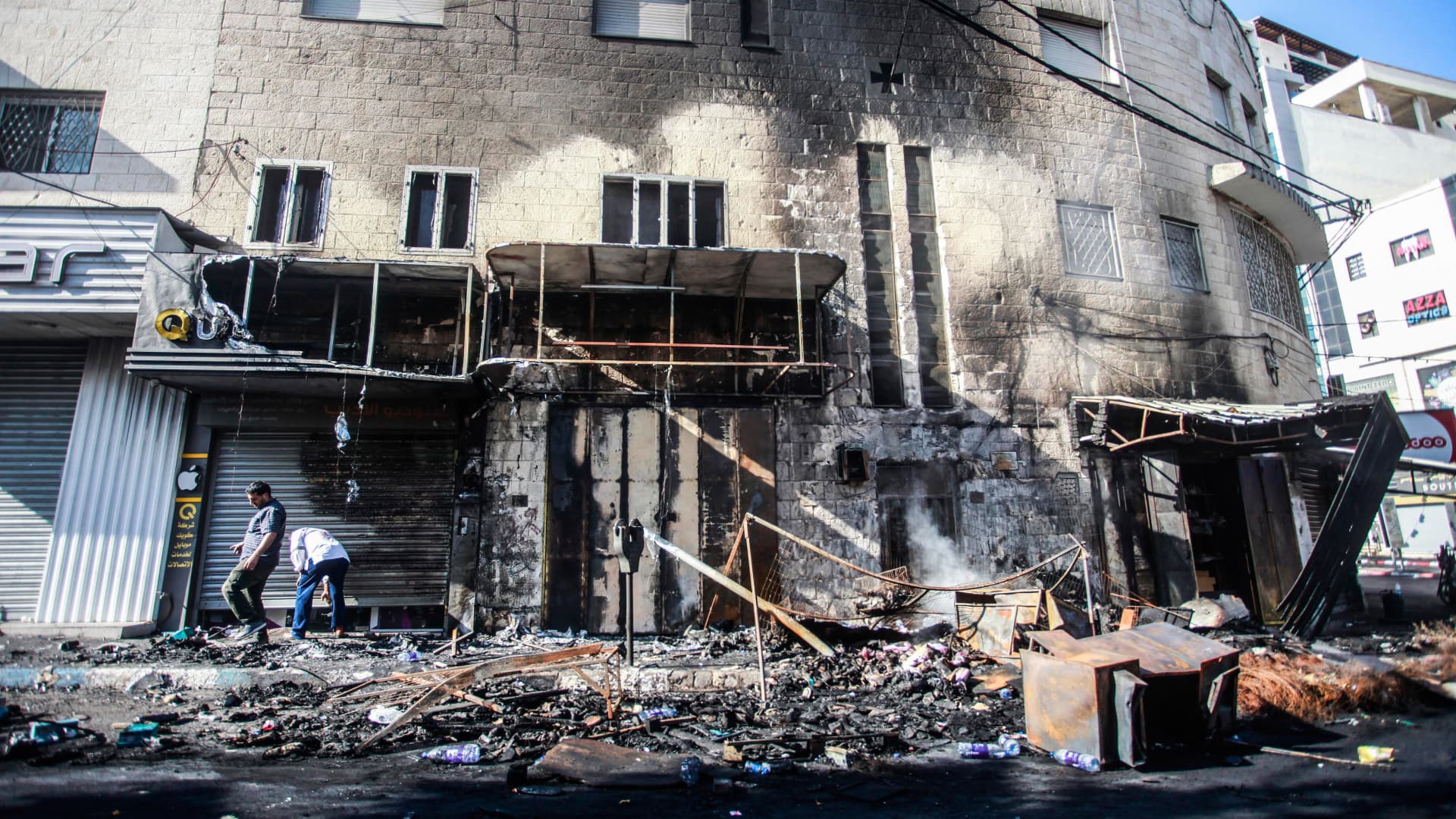Israeli troops withdrew from a militant stronghold in the occupied West Bank on Wednesday, ending two days of intense operations that killed at least 13 Palestinians, forced thousands from their homes and caused Large swathes of destruction. An Israeli soldier was also killed.
The army claimed to have wreaked havoc on armed groups in the Jenin refugee camp in an operation that included a series of airstrikes and hundreds of ground troops.
But after nearly a year and a half of intense fighting in the West Bank, it’s unclear whether there will be any lasting impact.
Before the withdrawal, Israeli Prime Minister Benjamin Netanyahu vowed to take similar action if needed.
“At this moment, we are completing our mission, and I can say that our extensive operation in Jenin is not a one-off,” he said during a visit to a military outpost on the outskirts of Jenin. “We will eliminate terrorism, wherever we Wherever we see it, we’ll fight it.”
The Jenin attack was one of the most intense Israeli military operations in the West Bank since the end of the Palestinian armed uprising against unlimited Israeli occupation two decades ago.
Since early 2022, Israel has carried out almost daily raids in the West Bank in response to a series of deadly Palestinian attacks. The statement said the attack was aimed at suppressing Palestinian militants and that it was necessary because the Palestinian Authority was too weak.
Palestinians say the violence is the inevitable result of 56 years of occupation and the absence of any political process with Israel. They also noted an increase in settlement construction and violence by extremist settlers in the West Bank.
Israel attacked the camp, known as a longtime bastion for Palestinian militants, early Monday in an operation it said was aimed at destroying and confiscating weapons.
Thousands of residents fled the camps to seek safety with relatives or shelters as large military bulldozers tore through alleyways, wreaking havoc on roads and buildings. People said that the power was cut off and the water was cut off. The military said the bulldozers were necessary because the roads were strewn with explosives.
The military said it had confiscated thousands of weapons, bomb-making materials and vast amounts of money. The military said weapons were found both in militant hideouts and in civilian areas, including in one case under a mosque.
Hamas militants rammed a car into a crowded bus station in Tel Aviv and began stabbing others, injuring eight people, including a pregnant woman who reportedly lost her child. The attacker was shot dead by an armed bystander. Hamas said the attack was retaliation for an Israeli offensive.
Earlier Wednesday, militants in the Hamas-ruled Gaza Strip also fired five rockets at Israel, which Israel said had been intercepted. Israeli warplanes struck multiple locations in Gaza.
In Jenin, fighting continued until shortly before the withdrawal on Wednesday morning.
The Israeli military said it carried out an airstrike against a group of militants inside the Jenin cemetery on Tuesday night. The gunmen allegedly threatened troops to leave the camp. Israeli and Palestinian officials also reported fighting near a hospital in Jenin late Tuesday. Associated Press reporters at the scene heard explosions and gunfire.
Palestinian health officials say 13 Palestinians have been killed and dozens more wounded in the Israeli attack. The Israeli military claimed only to have killed the militants, but gave no details.
The massive attack came amid a surge in violence that has lasted more than a year, posing a challenge to Netanyahu’s far-right government. The government, dominated by ultra-nationalists, has called for tougher action against Palestinian militants, only to see the fighting worsen.
More than 140 Palestinians have been killed in the West Bank this year, and Palestinian attacks against Israelis have killed at least 25, including a shooting that killed four settlers last month.
The ongoing operations have prompted warnings from humanitarian groups of a deteriorating situation.
Doctors Without Borders has accused the military of firing tear gas at a hospital, filling the emergency room with smoke and forcing emergency patients to be treated in the halls.
The UN human rights chief said the scale of the operation “raises a range of serious issues related to international human rights norms and standards, including the protection and respect of the right to life”.
Camp resident Kefah Ja’ayyasah said soldiers forced their way into her home and locked the family inside.
“They took the young people from my family upstairs and left the women and children in the ground-floor apartment,” she said.
She claims soldiers prevented her from bringing food to the children and when she yelled for help they prevented ambulance crews from entering the home and eventually allowed the family to go to the hospital.
In the West Bank, Palestinians staged a general strike to protest Israeli attacks.
The attack, which used airstrikes and large numbers of ground troops, characterized Israeli military tactics during the second Palestinian intifada in the early 2000s. But there are also differences, including its limited scope.
In the 1967 Middle East War, Israel occupied the West Bank, East Jerusalem and the Gaza Strip. The territories are sought by the Palestinians to establish what they want as an independent state.


